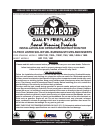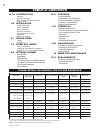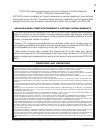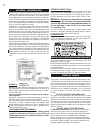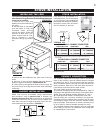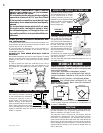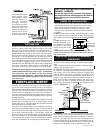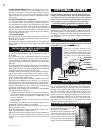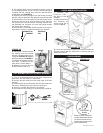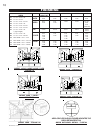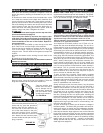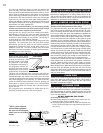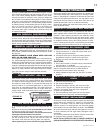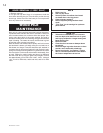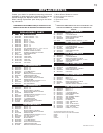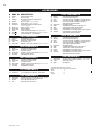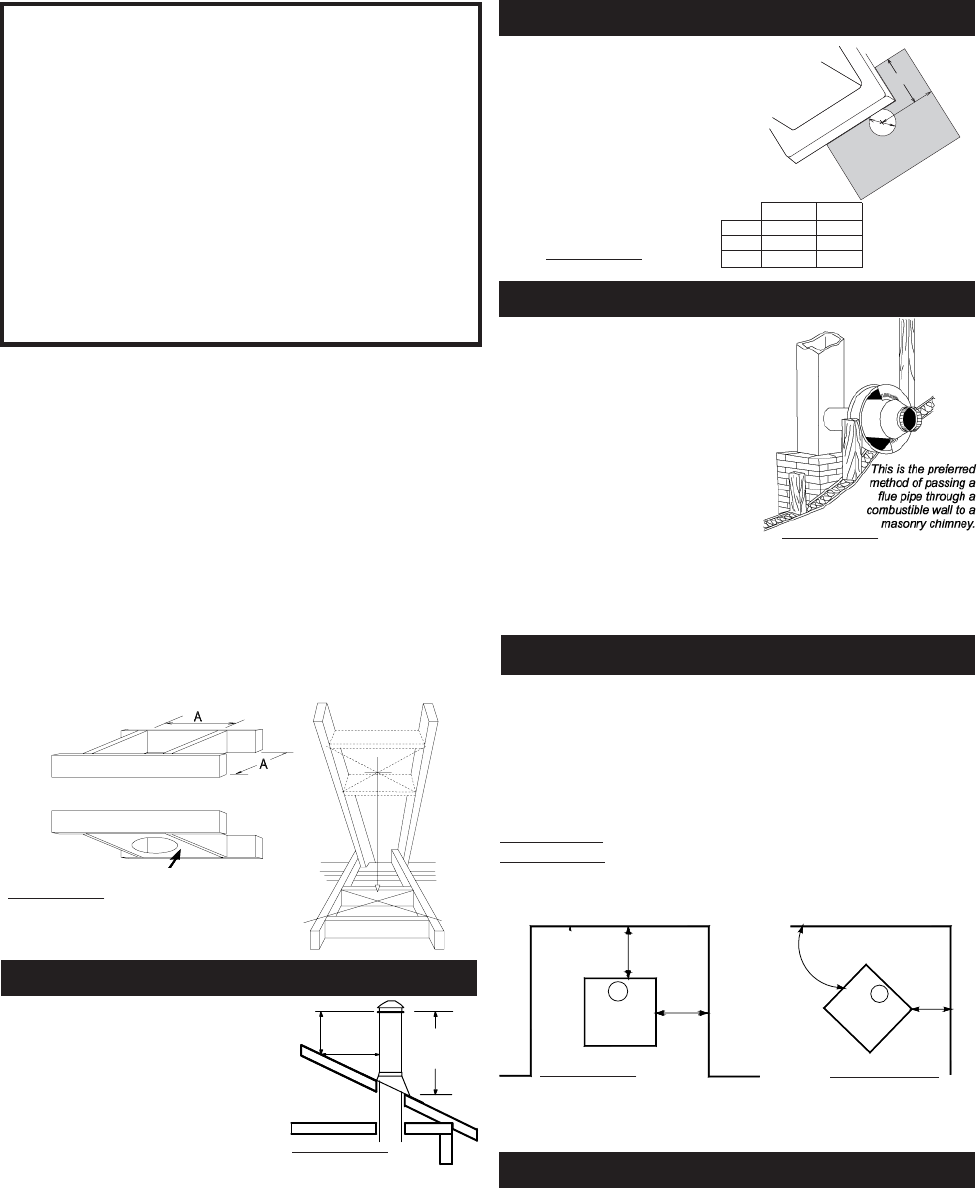
6
W415-0512 / B / 11.15.05
PEDESTAL BASE
4.5"
PEDESTAL BASE
FLOOR AREA BELOW STOVE
A"
B"
A (in.) B(in.)
1100 8 5/8" 9 3/4"
1400 11 1/8" 9 3/4"
1900 14 7/8" 9 3/4"
If possible connect the air intake
at the pedestal's back or bottom
to the outside with a 4 inch
(100mm) diameter fresh air kit
available at your Napoleon/Wolf
Steel Ltd. dealer. Follow detailed
instructions under "Mobile
Home Outside Air".
If possible, design the installa-
tion so that the connector does
not pass through a combustible
wall. If during your installation you
must pass through a combusti-
ble wall, check with your build-
ing inspector before you begin.
Also check with the chimney con-
nector manufacturer for any spe-
cific requirements.
Consult with your dealer regard-
ing special connection components available for use for
wall pass-throughs.
Use only parts that have been tested and listed for use in a
wall pass-through.
PEDESTAL MODEL 1100 IS APPROVED FOR INSTAL-
LATION IN MOBILE HOMES IN BOTH CANADA AND
THE UNITED STATES.
1150 IS NOT APPROVED FOR MOBILE HOMES.
PEDESTAL MODEL 1400 IS APPROVED FOR INSTAL-
LATION IN MOBILE HOMES IN THE UNITED STATES
ONLY.
WARNING: DO NOT INSTALL IN SLEEPING ROOM.
CAUTION: THE STRUCTURAL INTEGRITY OF THE
MOBILE HOME FLOOR, WALL AND CEILING/ROOF
MUST BE MAINTAINED.
The pedestal base must be firmly bolted to the floor with 1/
4 inch lag bolts. Minimum clearances to combustibles are
as shown in FIGURE 9.
Connect the stove to a chimney system using a listed dou-
ble wall connector. Use a chimney system listed to ULC
S629 in Canada or UL103HT in the U.S.A.
The chimney must be installed in accordance with the
manufacturer's instructions. Use only specified compo-
nents with no substitutions. The chimney and pipe must
extend at least 8 feet above the stove and 3 feet above the
highest point of the roof. Install a rain cap at the top which
will not impede the smoke exhaust. The chimney must be
supported at the ceiling or roof so that its weight does not
rest on the stove.
UNDERSIDE OF JOIST
FIRESTOP SPACER -
HEADERS
DO NOT USE ANY MAKESHIFT MATERIALS DUR-
ING INSTALLATION.
1. Move the stove into position with the flue centered, mid-
point between two joists to prevent having to cut them. Use
a plumb bob to line up the centre.
2. Cut and frame an opening in the roof to provide a 2"
clearance between the outside of the chimney and any
combustible material.
DO NOT FILL THIS SPACE WITH ANY TYPE OF
MATERIAL.
Nail headers between the joist for extra support. Firestop
spacers must be placed on the bottom of each framed
opening in any floor or ceiling that the chimney passes
through.
3. Hold a plumb bob from the underside of the roof to
determine where the opening in the roof should be. Cut
and frame the roof opening to maintain proper 2" clear-
ances.
Add chimney sections, according
to the manufacturers installation
instructions, securely, to the re-
quired height. The chimney must
extend, at least, 3 feet above its
point of contact with the roof and at
least 2 feet higher than any wall,
roof or building within 10 feet. FIGURE 6. If your chimney
system is enclosed within the attic area, a rafter radiation
shield is required.
FIGURE 5
MOBILE HOME
VENTING
ADDING CHIMNEY SECTIONS
PEDESTAL MODELS OUTSIDE AIR
THE TOTAL HORIZONTAL VENT LENGTH
SHOULD NOT EXCEED 40% OF THE CHIMNEY
HEIGHT ABOVE THE STOVE.
All horizontal smoke pipe must slope slightly
upwards a minimum of 1/4" per foot (6mm/
0.3m) and all connections must be tight and
secured by three sheet metal screws equally
spaced.
An uninsulated smoke pipe shall not pass
through an attic, roof space, closet or simi-
lar concealed space, or through a floor, ceil-
ing, wall or partition, or any combustible con-
struction.
FIGURE 6
3 FT.
MIN.
10 FT.
2 FT.
MIN.
FIGURE 7
WALL PASS-THROUGH
BACK WALL
6"
SIDE WALL
10"
2"
BACK WALL
45 °
SIDE WALL
FIGURE 9
FIGURE 10
FIGURE 8



